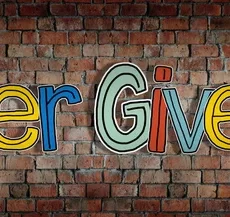Emphatic listening is the key to all conversations. But there is a danger of turning listening into a cult. Open a typical communications skills book (especially from the business shelves) and it will repeatedly emphasis listening. But say almost nothing about the opposite, which is taking off all your masks ensuring path of yourself with the other person. Too often we act like the festival goers at the annual carnival in venice, concealing our identities behind the mask. We hold back our emotions, hide our fears, and keep our anxieties buried within us. But emphatic relationships cannot easily develop unless we reveal ourselves and seek connection. Empathy is built upon mutual exchange. If we are open with others, they are much more likely to be open with us.
So we need to think of conversation as a two way dialogue to create mutual understanding. As Theodore Zeldin suggest, at this heart, conversation is about reciprocity
What is a conversation? it is much more than talk, which can be mere chatting about nothing in particular, or communication, which need to be no more than transmission of information to passive audience. Conversation is shared, reciprocal nourishment that enables humans to create and exchange trust, wisdom, courage and friendship. Whenever in the past humans have wanted to change the way they lived or thought, they have changed the subject and the methods of the conversation. Conversation is assuming a crucial role in both personal and professional life, and is becoming a currency as important as money, which enriches both parties with what money cannot buy. Happyho also provide best Meditation classes in Noida and Delhi NCR India area.
Highly emphatic people understand that if we fail to take off our masks, and end up constantly censoring ourselves, the result can be that conversation becomes stultified, repetitive and lacking authenticity. We face the danger of becoming like the male characters in victorian novels – or stiff upper lip and emotional reticence. We should welcome the gift of the Freudian revolution, which has expanded the social space for people to talk more openly about the issues that really matter to them, from sexual insecurity to feelings of loneliness and fame.
At its core, removing your mask is about embracing Vulnerability. The problem is that we live in a culture where making yourself vulnerable, exposing your uncertainties, taking emotional risks is considered a failing, and something that most of us rather avoid. Emotions researcher Brene Brown turns this attitude on it head, Arguing that vulnerability is actually good for us :
We are brought believing and being taught and seeing it modelled in our parents, that vulnerability is weakness and that going out into the world without armour is basically asking for the hurt that you get. But to me, vulnerability is not weakness, it is the greatest measure of our courage.
Her studies reveal the positive outcomes that emerge from stepping into the arena of vulnerability. It is precisely when we expose our vulnerability, perhaps in a relationship or at work, that “we have experiences that bring purpose and meaning to our lives” . Doing something risky – like asking for help, sharing an unpopular opinion, falling in love, admitting to being unconfident of afraid – may make us feel vulnerable, but it can also result in deeper relationships, creative break throughs, heightened joy, release of anxiety, and greater emphatic connections.




